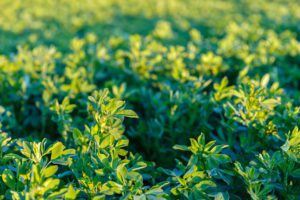By Dr. Don Miller
Director of Product Development | Alforex Seeds
along with Jeff Shaner & Bethany Kroeze
 You can have a highly profitable alfalfa enterprise using select AgVenture products like AV42C20™ and AV42H18™. As with any farm activity, a good plan, planting integrity and in-season care all add up to maximum profit.
You can have a highly profitable alfalfa enterprise using select AgVenture products like AV42C20™ and AV42H18™. As with any farm activity, a good plan, planting integrity and in-season care all add up to maximum profit.
Our colleague, Dr. Don Miller of Alforex Seeds, has a series of best agronomic and management practices to get the most production from the alfalfa in your operation. This is the first of a four-part series on alfalfa stand establishment for farmers in the upper Midwest. At AgVenture, we believe that every bag of our seed has the potential to produce more than your neighbor if you follow our Maximum Profit System™ and never give up on your crop.
In this post, Dr. Miller begins with aspects to consider in selecting the right location for your alfalfa products.
Field Selection: Alfalfa can be grown in a wide range of soil types; however, prior to planting the following field criteria should be considered.
- Fields with well-drained soils are generally the most productive.
- For fields with drainage concerns, avoid working when wet, carefully select varieties with a strong disease package, and consider a cool-season grass with the alfalfa.
- When possible, select fields following cereal grain or corn silage, but make sure that there are not any planting restrictions from a prior crop herbicide application.
Soil Test: A soil test should be conducted at least six months prior to planting to see if there are any fertility and/or soil-related factors that need to be addressed. Liquid dairy manure can be a good nutrient source as long as you stay within your farm’s nutrient plan. The most productive fields are those with good fertility and a pH in the range of 6.5-7.5. Soil pH below 6 or above 8.4 will need to be corrected before planting alfalfa.
Next in this series, we will consider preparations for superior stand establishment.
If you are ready to create an alfalfa plan for your operation, reach out to your AgVenture Yield Specialist or use the Seed Finder on our website to find your local Independent Seed Company.